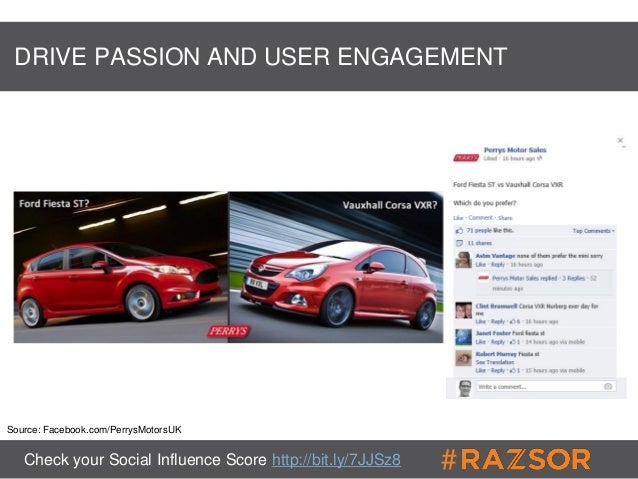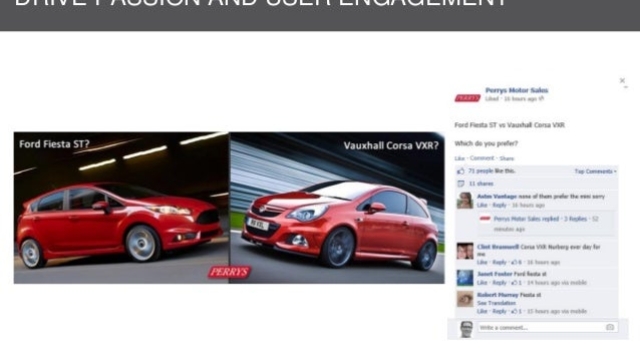The world of automotive retail is in the midst of a revolutionary transformation, propelled by digital technology and shifting consumer preferences. As we look ahead to the future, automotive retailers are faced with the exciting challenge of embracing innovation and enhancing customer engagement.
Gone are the days of traditional showroom visits where customers spend hours browsing through car models. Today’s consumers are armed with information and have a myriad of options at their fingertips. In this landscape, automotive retailers must adapt and find ways to stand out from the crowd, providing a seamless customer experience that combines the best of both virtual and physical worlds.
To navigate this rapidly changing environment, automotive retailers need a comprehensive guide that explores the latest trends, strategies, and technologies in automotive retail. This guide will serve as an invaluable resource, helping retailers understand the evolving customer journey, harness the power of data, and leverage emerging technologies to create personalized and engaging experiences. By staying informed and proactive, automotive retailers can thrive in an industry that continues to evolve at an unprecedented pace.
Shifting Trends in Automotive Retail

The automotive retail industry is experiencing a significant transformation as new trends shape the way consumers buy cars. With the emergence of cutting-edge technologies and evolving customer expectations, automotive retailers must adapt and embrace innovation to stay competitive.
Firstly, one of the prominent shifts in automotive retail is the growing influence of online platforms. The rise of the internet and e-commerce has empowered consumers to conduct extensive research, compare prices, and even make purchases without stepping foot into a physical dealership. This accessibility to information has transformed the consumer journey, making it crucial for automotive retailers to establish a strong online presence and provide accurate and transparent information about their products.
Secondly, the demand for personalized customer experiences is driving retailers to invest in technology that enhances customer engagement. Innovative solutions like virtual reality showrooms, immersive test drives, and interactive vehicle configurators are revolutionizing the traditional car buying process. By leveraging these technologies, retailers can offer customers a more engaging and tailored experience, enabling them to visualize and customize their dream cars before making a purchase decision.
Lastly, sustainability and environmental consciousness have become significant factors in the automotive retail landscape. As more consumers prioritize eco-friendly options, there is a rise in the demand for electric and hybrid vehicles. Automotive retailers need to align with this trend by ensuring they have a diverse inventory of sustainable vehicles and educating customers about their benefits. Implementing eco-friendly practices within dealerships, such as installing electric vehicle charging stations, can also contribute to attracting environmentally-conscious customers.
In conclusion, the future of automotive retail lies in embracing innovation and enhancing customer engagement. By keeping up with shifting trends, such as leveraging online platforms, utilizing advanced technologies for customer interaction, and promoting sustainability, automotive retailers can thrive in this ever-evolving industry. Embracing these changes will not only attract and retain customers but also position retailers as leaders in the automotive retail space.
2. Embracing Technological Innovations
In the dynamic world of automotive retail, embracing technological innovations has become vital for success. Dealerships are now recognizing the power that technology holds in transforming the customer experience and driving business growth.
One major technological innovation that has revolutionized the automotive retail industry is the integration of virtual reality (VR) and augmented reality (AR) in the showroom experience. With VR and AR, customers can now visualize and customize their dream cars in a virtual environment, gaining a more immersive and personalized experience. This not only enhances customer engagement but also expedites the decision-making process, ultimately leading to increased sales.
Another technology that is making waves in the automotive retail landscape is artificial intelligence (AI). AI-powered chatbots and virtual assistants are now being deployed to provide instant customer support and guidance, catering to the needs and inquiries of potential buyers. These intelligent systems can offer personalized recommendations, assist with financing options, and even schedule test drives, ensuring that customers receive the assistance they need throughout the purchasing journey.
Furthermore, the rise of the internet of things (IoT) has opened up new possibilities for automotive retail. Connected cars equipped with IoT technologies enable dealerships to gather valuable data on vehicle performance, maintenance requirements, and customer preferences. This data-driven approach allows for proactive service and targeted marketing campaigns, creating a more personalized experience for customers and fostering long-term loyalty.
By embracing these technological innovations, automotive retailers can transform the way they interact with customers and adapt to the evolving landscape. As we move towards the future, staying at the forefront of technology will be the key to success in the highly competitive automotive retail industry.
3. Prioritizing Customer Engagement
In the rapidly evolving landscape of automotive retail, one aspect that deserves utmost attention is customer engagement. Understanding and meeting the needs of customers has always been crucial, but with the advent of innovative technologies, it has become even more paramount for the success of automotive retailers.
One way to prioritize customer engagement is by leveraging data analytics. By collecting and analyzing data on customer preferences, behavior, and purchasing patterns, automotive retailers can gain valuable insights into their target audience. This information can then be used to personalize the customer experience, tailoring offers and promotions that are relevant and appealing to individual customers.
Furthermore, embracing digital platforms and online channels is another effective means of engaging customers in the automotive retail industry. From virtual showrooms to interactive augmented reality experiences, technological advancements have opened up new avenues for customers to explore and engage with the automotive products and services on offer. By providing seamless and immersive digital experiences, automotive retailers can enhance customer engagement and build stronger relationships.
Lastly, fostering a culture of excellent customer service is paramount in prioritizing customer engagement. Investing in knowledgeable and friendly staff, as well as providing ongoing training, can greatly enhance the customer experience. Staff should be well-equipped to address customer queries, offer expert advice, and provide a seamless and enjoyable buying journey. By prioritizing exceptional customer service, automotive retailers can differentiate themselves from competitors and establish a loyal customer base.
In conclusion, the future of automotive retail lies in prioritizing customer engagement. Through the use of data analytics, embracing innovative digital platforms, and fostering a culture of excellent customer service, automotive retailers can enhance customer experiences, build lasting relationships, and thrive in the dynamic and competitive market.
